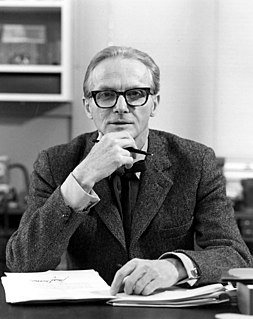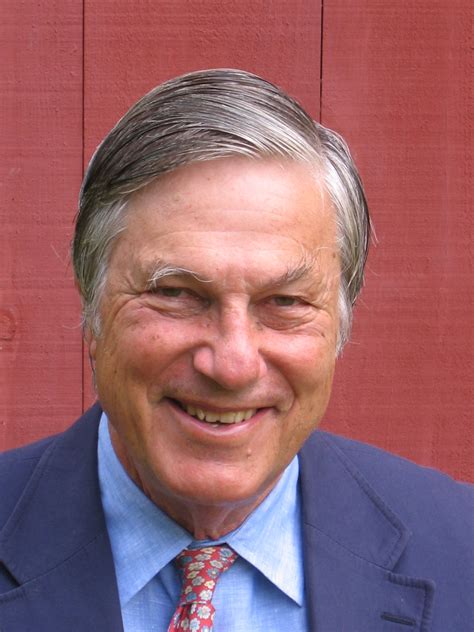A Quote by William Lipscomb
Our schools offer no conception of the scientific process of discovery. They do not encourage creative thought, in fact, they stifle it through too much rigidity in teaching. If we set out to give as little help as possible to originality in science, we could hardly devise a better plan than our education system. Youngsters ought to be told what is unknown about ourselves and our universe as well as what is known.
Quote Topics
About
Better
Conception
Could
Creative
Creative Thought
Discovery
Education
Education System
Encourage
Fact
Give
Hardly
Help
In Fact
Known
Little
Little Help
Much
Offer
Originality
Ought
Our
Ourselves
Out
Plan
Possible
Process
Rigidity
Schools
Science
Scientific
Set
Stifle
System
Teaching
Than
Thought
Through
Too
Too Much
Universe
Unknown
Well
Youngsters
Related Quotes
There is a plan, it seems to me, that reaches out of the electron to the rim of the universe and what this plan may be or how it came about is beyond my feeble intellect. But if we are looking for something on which to pin our faith- and, indeed, our hope- the plan might well be it. I think we have thought too small and have been too afraid.
How is it that hardly any major religion has looked at science and concluded, “This is better than we thought! The Universe is much bigger than our prophets said, grander, more subtle, more elegant?” Instead they say, “No, no, no! My god is a little god, and I want him to stay that way.” A religion, old or new, that stressed the magnificence of the Universe as revealed by modern science might be able to draw forth reserves of reverence and awe hardly tapped by the conventional faiths.
I suggest that this is a good time to think soberly about our responsibilities to our descendents - those who will ring out the Fossil Fuel Age. Our greatest responsibility, as parents and as citizens, is to give America's youngsters the best possible education. We need the best teachers and enough of them to prepare our young people for a future immeasurably more complex than the present, and calling for ever larger numbers of competent and highly trained men and women.
I do not believe one can settle how much we ought to give. I am afraid the only safe rule is to give more than we can spare. In other words, if our expenditure on comforts, luxuries, amusements, etc, is up to the standard common among those with the same income as our own, we are probably giving away too little. If our charities do not at all pinch or hamper us, I should say they are too small. There ought to be things we should like to do and cannot do because our charitable expenditure excludes them.
If we could sufficiently understand the order of the universe, we should find that it exceeds all the desires of the wisest men, and that it is impossible to make it better than it is, not only as a whole and in general but also for ourselves in particular, if we are attached, as we ought to be, to the Author of all, not only as to the architect and efficient cause of our being, but as to our master and to the final cause, which ought to be the whole aim of our will, and which can alone make our happiness.
It is often said that education and training are the keys to the future. They are, but a key can be turned in two directions. Turn it one way and you lock resources away, even from those they belong to. Turn it the other way and you release resources and give people back to themselves. To realize our true creative potential-in our organizations, in our schools and in our communities-we need to think differently about ourselves and to act differently towards each other. We must learn to be creative.
Dogmatism of all kinds--scientific, economic, moral, as well as political--are threatened by the creative freedom of the artist. This is necessarily and inevitably so. We cannot escape our anxiety over the fact that the artists together with creative persons of all sorts, are the possible destroyer of our nicely ordered systems. (p. 76)
It is sometimes said that because of our past we, as a people, expect too much and set our sights too high. That is not the way I see it. Rather it seems to me that throughout my life in politics our ambitions have steadily shrunk. Our response to disappointment has not been to lengthen our stride but to shorten the distance to be covered. But with confidence in ourselves and in our future what a nation we could be!
Aging happy and well, instead of sad and sick, is at least under some personal control. We have considerable control over our weight, our exercise, our education, and our abuse of cigarettes and alcohol. With hard work and/or therapy, our relationships with our spouses and our coping styles can be changed for the better. A successful old age may lie not so much in our stars and genes as in ourselves.
Art that means anything in the life of a community must bear some relation to current interpretations of the mystery of the universe. Our rigid separation of the humanities and the sciences has temporarily left our art stranded or stammering and incoherent. Both art and science ought to be blended in our early education of our children's emotions and powers of observation, and that harmony carried forward in later education.


































